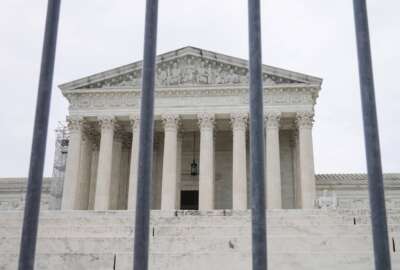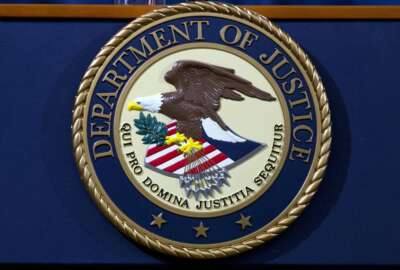The Supreme Court shifts the ground under the False Claims Act
Two recent Supreme Court decisions changed the calculus for contractors when it comes to dealing with the False Claims Act. The court altered long-standing...
Two recent Supreme Court decisions changed the calculus for contractors when it comes to dealing with the False Claims Act. The court altered long-standing definitions of “reckless disregard” and “deliberate ignorance.” And it gave the government more discretion over dismissing whistleblower cases under the false claims act. For analysis, Federal Drive Host Tom Temin turned to long-time procurement attorney and a partner at Center Law, Alan Chvotkin.
Interview Transcript:
Tom Temin And let’s talk about the SuperValu case first, which changed some of these definitions of what you knew and when you knew it. What’s going on here?
Alan Chvotkin Well, let me just give you a little tutorial for some of your listeners who may not be as steeped in the False Claims Act as you are. The False Claims Act provides that any person who knowingly submits or causes to submit a false claim to the government is liable for damages up to three times the government’s damages. In addition to allowing the government to pursue perpetrators of fraud on its own, the False Claims Act allows private citizens to file suit on behalf of the government.
Tom Temin And they go back to the civil the Middle Ages, actually.
Alan Chvotkin The original False Claims Act was 1863, the so-called Lincoln Law, because of contractor fraud even back then. So these relator’s can then pursue the litigation on behalf of the government. And they can get then a portion of the recovery, in some cases significant recovery, a portion of it. But there are numerous procedural actions that they have to take that the law imposes on these Relator’s because the suit is actually brought in the name of the United States government. So you’ve heard me say for years that in government contracting, words matter. And in the context of the False Claims Act, almost every word and paragraph in section has been litigated because of the actions.
Tom Temin I think even the Supreme Court called it a thicket because I read that decision a couple of those decisions and they pack a lot into 37 pages.
Alan Chvotkin Well, they do. And part of the thicket has been caused by the Supreme Court themselves. And so that leads us to this SuperValu case. You’ve heard me say, and some of our listeners who are of a certain age might remember the catch phrase from Senator Howard Baker during the 1973 Watergate hearings about President Nixon. What did the President know and when did he know it? Well, that’s really a good set of questions to look at this SuperValu case. It’s actually a combination, two cases that were unanimously decided by the Supreme Court on June 1. The False Claims Act says, as you alluded to, that there has to be a knowing violation and it can be one of three tests. Did the defendant have actual knowledge of the falsity, did the defendant act in a deliberate ignorance of the truth, or did it act in reckless disregard of the truth or falsity? And so earlier courts, appeals courts had said that the standard for judging that knowledge was objective reasonableness. Did anybody really believe that that rule or regulation or law could be truthful and that there was no action or guidance from the government that told you otherwise? The Supreme Court rejected that objective reasonableness test and what it termed subjective beliefs. And I’d like to say, reading one sentence from the decision, the court said, ‘What matters for an FCA case is whether the defendant knew the claim was false when submitting the claim, not afterwards, not what others thought. But did the defendant know the claim?’ And so that’s the heart of the decision.
Tom Temin So SuperValu then got off the hook because its officers did not know of the violation when they submitted a claim.
Alan Chvotkin Well, SuperValu got off the hook at this point, but the court didn’t address whether SuperValu knew or not. Sent it back to the Seventh Circuit Court to decide whether the facts of that case now aligned with the timing of what they knew and when they knew it.
Tom Temin Sure. So let me ask you just one question about the implications. So say now the Supreme Court says it only matters what you knew when you submitted that claim. Suppose you submit the claim, takes the government some time to pay a bill and you find out, whoops, we overcharged. This labor rate was wrong. What should a company do?
Alan Chvotkin Well, that’s a slightly different case because now overcharging is different than the knowledge of whether that claim itself was false. And so my advice is always notify the government immediately, pay it back and sort through, then whether that labor rate was true or false and whether the billing was accurate or not.
Tom Temin Right. So in the case of the SuperValu decision, then it really more affects the whistleblower type cases and whether a whistleblower can say, well, they knew about this all along.
Alan Chvotkin Exactly right. Exactly right. Yeah. And it’s not what somebody else knew, it’s not two years later, we found out that that was true. No, it’s what did the defendant know at the time that they submitted that claim. Now, that may be hard to prove. And that’s going to be a burden on the whistleblowers to get at that.
Tom Temin That was my question. It’s tougher on whistleblowers now to bring these types of cases.
Alan Chvotkin It will be harder and proof is going to be hard. One of the questions we’re we’re asking ourselves is how do you prove what a defendant knew? What did the company know? Is it what the CEO believed is it a committee of three, six, 200? So lots of debate yet to take place about this knowledge at the time the submission is made.
Tom Temin We’re speaking with Alan Chvotkin. He’s a partner at the Center Law Group. I guess the old adage applies. A penny’s worth of compliance can save you dollars worth of trouble later on.
Alan Chvotkin Very much so. Very much so. So you can always ask the government for clarity if there’s an ambiguity in a regulation or or a process, they may or may not tell you. But at least if you’re raising those questions, you’re providing some contemporaneous record that what you believe that to be. You can always document what you believe that record to be. Ask competent lawyers in that subject matter what their opinion is. All of those go to the state of mind, if you will, at the time the submission is made.
Tom Temin All right. And then with respect to the qui tam cases there, the Supreme Court had an 8 to 1 decision. They said when a when the Justice Department could come into a qui tam case and dismiss it and they said they can have it dismissed after the silent period, which has traditionally been the window of opportunity.
Alan Chvotkin That’s exactly right. I mentioned earlier the numerous procedural issues that the qui tam complaint in has to go through and the original complaint is filed under seal. That means it’s secret filed with the court, not public at the time. And it gives the Justice Department a chance to evaluate the merits of the case. If they take over the case, then the government controls the litigation and end of discussion. The government can pursue it, the government can dismiss it. And there’s no question. But the government can also declined to take over a case and allow the relator to continue with the litigation. So the case in front of the Supreme Court was after the Justice Department declined. This was another health care case. Justice Department initially declined. And after five years of litigation, Justice Department asked to come back in and dismiss the case. And what the Supreme Court said is, no, you don’t have an absolute right to dismiss cases. First, you have to ask to come back in to intervene in the case at whatever stage it is. And then if the district court agrees, then the district court can assess whether to dismiss the case. But it’s interesting, the Supreme Court made an interesting comment. It said that once the government is given permission, the court, the district court must evaluate any request for dismissal over the relator’s objections, and it should be honored, quote, ‘In all but the most exceptional cases, even if the relator presents a credible assessment to the contrary.’ So strong preference for dismissal that the government requested, even if it comes later. Interesting, in this case, you said 8 to 1 is absolutely right. And the dissent came from Justice Thomas, who had written the majority opinion in the SuperValu case. And Justice Thomas’s view was that the government only gets one chance to decide right at the beginning. They don’t get a second chance or a third chance or a fourth chance, one chance only.
Tom Temin Well, how often does the Justice Department actually get into the situation? Do they usually dismiss them in the period that it’s sealed or do they try to jump in later?
Alan Chvotkin If I recall correctly, Justice said that the second round of intervention is fairly rare, 30 to 40 times over, in a period of time when they’ve sought to come back in and usually for extraordinary circumstances. In this case, Polanski case, the dismissal, there were some issues about privilege issues that they thought overrode the underlying value of the case.
Tom Temin So good or bad for whistleblowers in this case?
Alan Chvotkin Well, good or bad for whistleblowers, bad for lawyers, because this could terminate a case long even while the litigation is ongoing. And in this case, it was five years.
Tom Temin But a relator could be out a lot of money, a lot of money in effort. If five years later, Justice says, could be a different administration and likely will be in five years. And say, sorry, that’s the end of it.
Alan Chvotkin Our standards have changed. Our basis for for pursuing this case has changed. And it was a letting you take it on or the relator could very well have not done a good job of pursuing the litigation. And so any number of issues might arise that that might trigger this. But it’s interesting that both sides got a little bit. The Justice Department lost on automatic withdrawal, automatic dismissal, but the court gave the Justice Department wide authority to seek dismissal for appropriate reasons.
Tom Temin And a final question. I talked to Steve Kohn of DC, a lawyer who defends whistleblowers, and he says that the dissent by Justice Thomas, that one vote contained the seed of a constitutional challenge to the whole qui tam case apparatus in the first place. Is that your sense of the reading of this?
Alan Chvotkin Oh, absolutely. It was very clear. Justice Thomas actually, not only Justice Thomas, who was the dissenter, but he was joined by Justice Kavanaugh and Barrett, and they raised the question of whether the entire scheme of permitting these relator cases is constitutional. They raised that it’s not part of the decision in this case. They raised it signaling that they’d be interested in taking that issue on at some point later.
Copyright © 2025 Federal News Network. All rights reserved. This website is not intended for users located within the European Economic Area.
Tom Temin is host of the Federal Drive and has been providing insight on federal technology and management issues for more than 30 years.
Follow @tteminWFED






